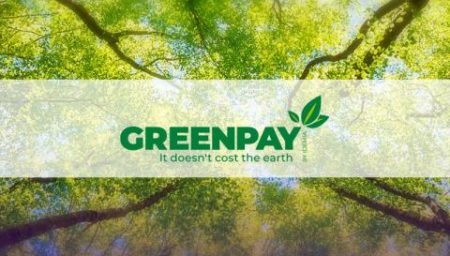Enabling the payment community’s environmental paradigm shift

Transition will reduce CO2 emissions by 161 tonnes a year, and save 73 tonnes of plastic per year.
HSBC is announcing a new programme to introduce sustainable payment cards across all its global locations. By the end of 2026, it will eliminate single-use PVC plastic in favour of recycled PVC plastic (rPVC).
The programme—which includes HSBC’s debit, credit, and commercial cards—is part of the bank’s strategy to reduce its carbon emissions and achieve net zero in its operations and supply chain by 2030 or sooner.
Working with global cards manufacturer IDEMIA, the bank will introduce new cards gradually across its locations. Rollout started in Malaysia in January 2021, and will continue in Sri Lanka this month; followed by the UK this summer. It will then extend across further countries and markets by the end of 2021, including Australia, Canada, Indonesia, Macau, Mexico, Singapore, UAE, and US.
Based on the current volume of cards issued by HSBC per year (23 million), the move to rPVC will reduce CO2 emissions by 161 tonnes a year. Each card will also reduce plastic waste – 73 tonnes per year, that’s the weight of over 40 cars.
We’re delighted that recycled plastic materials are now available at a scale that enables us progressively to replace our payment cards around the world. This will reduce our carbon emissions as we transition to sustainable materials throughout the card production process. This is another step as we move towards a net zero business, to help the bank and our customers make a positive impact on the environment.
Richard Harvey, Group Head of Retail Banking Products, at HSBC
As locations begin issuing rPVC cards, customers requiring new or replacement cards will be the first recipients. To preserve the life of their existing cards for as long as possible, recycled plastic cards will be issued as old cards naturally expire. The availability of rPVC cards will vary by location, as each country joins the programme.
The move to rPVC underpins HSBC’s global ambition to build a thriving and resilient future, and is part of the bank’s transition to be a net zero business. The switch is a first step in a gradual transition to issue cards made from sustainable materials, and HSBC will continue to evaluate other alternative materials too.
HSBC is committed to achieving net zero by 2050 or sooner; and we’ve pledged to work with our customers in all sectors to reduce emissions. Evolving our payment cards to eliminate single-use plastic cards is part of our aim to be net zero in our operations and supply chain by 2030 or sooner. New sustainable materials, such as rPVC, offer the financial services industry a clear way to accelerate its efforts to build a more sustainable future, and we’re proud to be part of a movement which is gathering momentum across the world.
Taylan Turan Group Head of Customers, Products and Strategy at HSBC
Global research conducted for HSBC by Mintel found a majority (77%) of consumers agree that ‘financial services firms have an important role to play in creating a more sustainable society’; when it comes to their appetite for payment cards made from sustainable materials, over two-thirds (67%) showed high levels of interest. A separate global survey, conducted for IDEMIA by Dentsu Data Labs found that most people (92%) think their bank should actively contribute to preserving the planet; and a majority (87%) expect their banks to offer eco-friendly cards.
IDEMIA is proud to be a long term global partner of HSBC and to be supporting its sustainability goals with our GREENPAY solution part of our portfolio of sustainable solutions for financial institutions. We fully share HSBC’s goals of sustainability—we believe bank cards shouldn’t cost the earth; and we look forward to working with HSBC as it migrates its card portfolio worldwide to rPVC. Manufactured from waste materials, rPVC cards significantly reduce plastic waste, which is one of the most pressing problems of our modern world. Migrating to recycled plastic also saves energy, limits oil consumption and reduces greenhouse gas emissions, to help mitigate global warming and reduce air pollution.
IDEMIA’s Executive VP Financial Institutions Amanda Gourbault
1) By Q4 2026, payment cards issued by HSBC will move from single-use PVC plastic to recycled PVC plastic; starting at 85% rPVC in the first half of 2021, and rising to 100% rPVC later in the year; this includes debit, credit and commercial cards.
2) HSBC is the first global bank to partner with IDEMIA to roll out rPVC cards on a worldwide scale. The majority (99%) of HSBC’s payment cards are produced by IDEMIA.
3) HSBC currently issues 23 million payment cards globally per year, to customers in 52 countries/markets.
4) All carbon and plastic savings based on cards made from 85% rPVC originating from industrial waste. Compared to a standard PVC plastic card, each rPVC card will save 7g of carbon and save 3.18g plastic (source: IDEMIA).
– Reduction of carbon dioxide emissions: each card = 7g x 23m = 161 tonnes CO2
– Plastic waste reduction: each card = 3.18g x 23m = 73 tonnes of plastic
– 73 tonnes = 40 times heavier than an average car, e.g. a 2009 Ford Taurus weighs 1.6520 tonnes (source: https://www.themeasureofthings.com/singleresult.php?comp=weight&unit=tns&amt=73&i=1)
5) Research methodology:
– Mintel: online survey in August 2020 among 10,450 people aged 18+ who own financial products, in UK, Canada, Mexico, China, Hong Kong, and Singapore;
– Dentsu: online survey conducted for IDEMIA by Dentsu Data Labs with 2,791 people from 12-25 March 2020 in 10 countries: Brazil, France, India, Japan, Malaysia, Mexico, South Africa, UAE, UK, USA.
6) Replacement cards refers to cards that need to be reissued when they are lost or stolen.

Latest News
Related Content